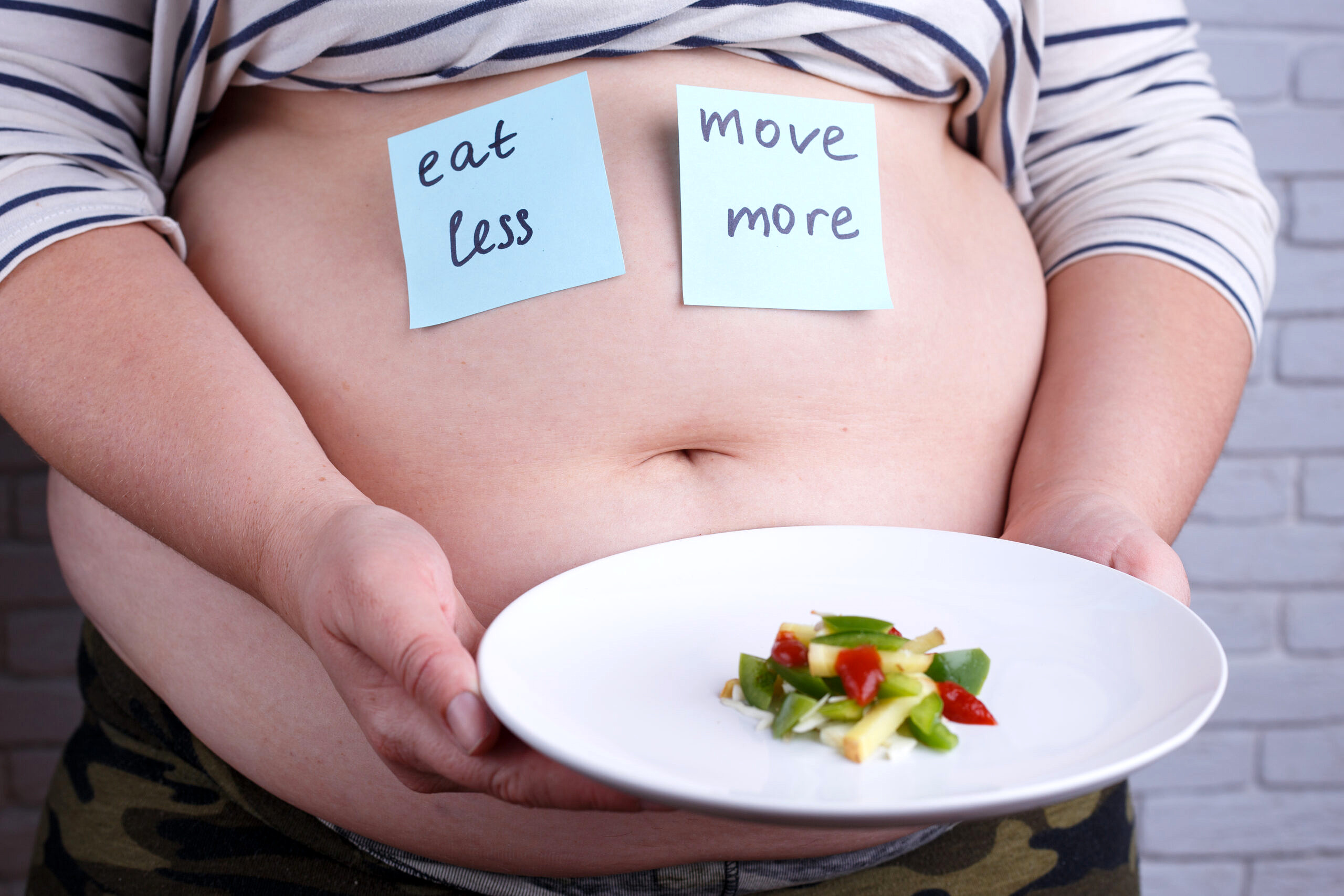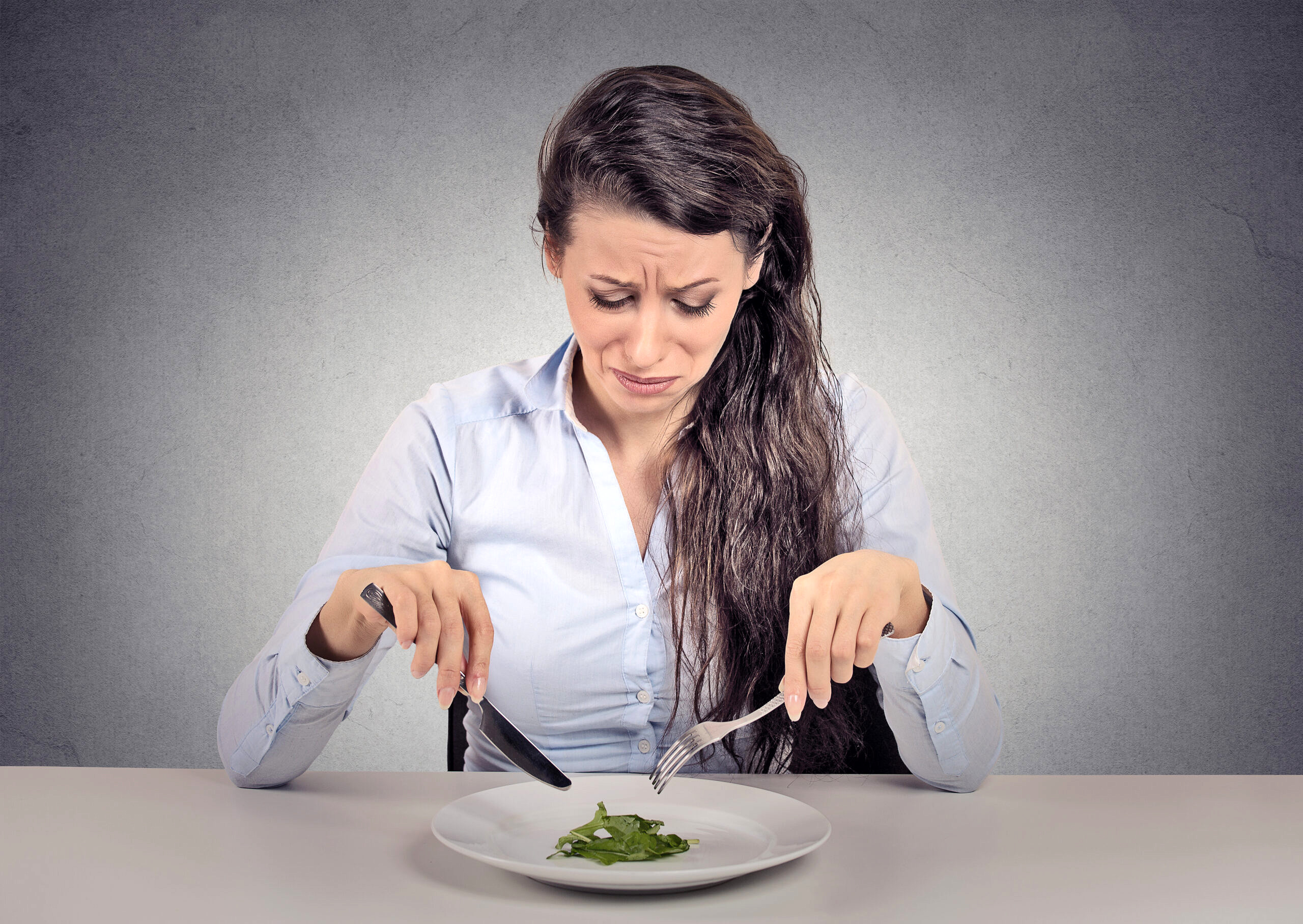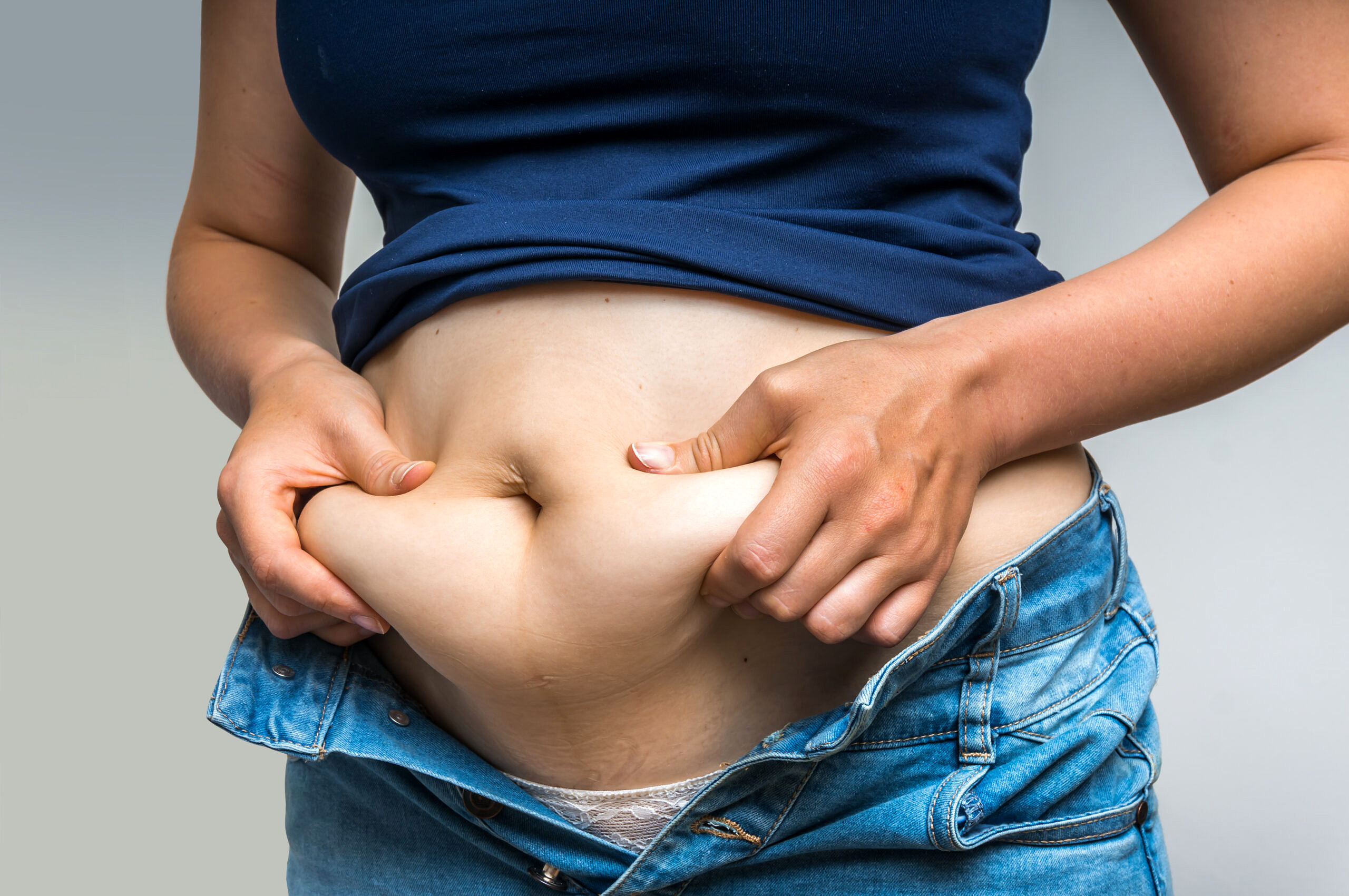Why restricting calories doesn’t work for weight loss
 For the past 30 years, conventional nutritional wisdom has recommended eating less and exercising more if you want to lose weight. In theory, this makes sense – burn more calories than you eat, and the pounds will come off. I wish it was that simple, but it’s not. To believe that weight is due to calories in vs. calories out is a huge mistake. Restricting calories IS NOT the solution for long-term, healthy weight loss.
For the past 30 years, conventional nutritional wisdom has recommended eating less and exercising more if you want to lose weight. In theory, this makes sense – burn more calories than you eat, and the pounds will come off. I wish it was that simple, but it’s not. To believe that weight is due to calories in vs. calories out is a huge mistake. Restricting calories IS NOT the solution for long-term, healthy weight loss.
Calories in vs. Calories out
Our friendly weight loss experts have tried to simplify weight loss by applying the Energy Balance Equation, which is the relationship between your energy input and your energy output. What you eat and drink is your ENERGY INPUT. What you burn through physical activity is your ENERGY OUTPUT.
A calorie is a unit of energy. So according to this equation, the amount of body fat you have is based on the calories you consume minus the calories you expend.
Body Fat = Calories In – Calories Out
According to this formula, in order to maintain a stable weight, the number of calories you get from your food and beverages needs to equal the number of calories you burn. If the calories you consume are greater than the calories you burn, then you will gain weight over time.
And if the calories in are less than the calories out, then you will lose weight over time. So if one wishes to lose weight, they must create a caloric deficit, by burning more calories than they consume.
That’s why for many of you who have decided to lose weight, the first thing you decided to do was to eat less and exercise more. Many of us have been there, including myself. Some of you will try it numerous times before you realize, that this approach does not work! If you’ve believed the narrative that reducing calories will help you lose weight, then you would assume that eating too many calories will make you fat. So therefore, calories must be fattening, right? WRONG!
In measuring the caloric value of food, its ability to give off heat is what’s considered. The calorie is NOT a measure of its nutritional value. Therefore, valuing foods based on the calorie and not it’s nutritional value is complete nonsense. Reduce the calories to lose the weight sounds simple, but unfortunately, that is not the case. It is also bad advice.
CALORIE RESTRICTION DOESN’T WORK FOR LONG-TERM WEIGHT LOSS! It never has and it never will! And it’s sad to believe that many weight loss “experts” still agree that this is the key to weight loss.
Our bodies need calories to survive
Exercise, physical activity, and getting in an extra 10,000 steps every day, isn’t the only way we burn calories. Our bodies need calories to survive. Our bodies need a minimum amount of calories or energy per day to sustain metabolic functions such as regulating heartbeat, breathing, new muscle and bone production, heat production, brain function, and fat production.
The calories your body uses to sustain these functions is referred to as your basal metabolic rate or BMR. This can range from 1200 to 3000 calories per day depending on factors such as your age, gender, occupation, and size. You may have heard that a pound of fat equals 3500 calories. Many experts still preach that in order to lose weight, you must eat 500 calories less than what your body needs to drop a pound of fat a week.
Listen… If your body needs 2000 calories per day to carry on its normal metabolic functions, and you reduce that input to 1500 calories per day, do you honestly think your body will ignore your heart rate, your breathing, and your digestion so you can look good in a bathing suit. NOOOOOO!!!
Here’s an analogy. Say you make an income of $2000 per week and you spend $2000 per week. Suddenly your income gets reduced to $1500 per week. What is the smart thing to do? Would you continue to spend $2000 per week, or would you adjust to the new income, by reducing your spending to $1500 per week? You would adapt to the lowered income by reducing your spending. You would prioritize your spending. By not going to restaurants or getting that weekly pedicure.
That is the same thing that happens to your body. When you reduce calories, your body will adapt to the new caloric input. Now at 1500 calories there are:
- Fewer calories available to heat the body – you will start to feel cold
- Fewer calories available to grow hair and nails – your nails will become brittle and your hair falls out
- Fewer calories available for the brain to function – you will have trouble with focus and concentration
Your body will do whatever it can to survive. Your body is not going to continue to burn 2000 calories when it’s only getting 1500, just like you shouldn’t spend $2000 per week when you are only making $1500!
Fat is a source of energy. To conserve energy, the body will slow down it’s metabolism and go into fat storage mode, NOT FAT BURNING MODE. This is the body’s way of preserving itself and keeping you alive, but you will feel lousy in the process. Initially you will lose some weight, but as your body adjusts to the lowered caloric intake, the weight plateaus. Then you will get all in your feelings because the scale isn’t changing. Not only that, as your metabolism decreases, your hunger increases. And then one day you tell yourself, “Forget this, I’m hungry” and go back to your 2000 calorie diet. Now that your metabolism has slowed down to the 1500 calorie input, all that weight comes back and brings some friends. Then you live with it until you decided to repeat this same cycle all over again, hoping it will work the next time. I need to tell you something…. IT WON’T WORK NEXT TIME EITHER!
This cycle has to stop, because the more you repeat the more resistant the weight loss becomes and the more weight you will gain over time. This is why there are many middle aged women who don’t appear to each much, and now can’t lose weight. I know this, because I help these women.
What you want to do is increase metabolic function, not decrease it. Reducing calories converts your body to fat storing mode, not fat burning mode.
Obesity is a hormonal problem, not a caloric problem
When you eat less, so does your caloric expenditure. This is why calorie restriction doesn’t work! So if reducing calories doesn’t make you lose weight, then what does? I’m glad you asked that question….
The real problem is that your weight problem is a hormonal problem. Hormones act like messengers, binding to cells to signal them to carry out a range of biological functions.
Hormones regulate growth and repair.
Hormones regulate metabolism.
Hormones maintain sexual development and reproduction.
Hormones make you feel hungry.
Hormones make you feel full.
Hormones tell the body to burn fat.
Hormones tell the body to store fat and one of those hormones is INSULIN.
 Insulin is a protein hormone secreted by pancreatic beta cells. When glucose increases in the blood stream, insulin is released. Its job is to stimulate the uptake of glucose into the cells. Once glucose enters the cell, it is used for energy. This is a normal physiological response. Insulin not only plays a role in energy metabolism, it also promotes fat storage. When insulin is high, fat storage is turned ON and fat burning is turned OFF. When insulin is low, fat storage is turned OFF and fat burning is turned ON. Chronic, elevated insulin levels lead to excess fat storage. Excess fat storage leads to obesity.
Insulin is a protein hormone secreted by pancreatic beta cells. When glucose increases in the blood stream, insulin is released. Its job is to stimulate the uptake of glucose into the cells. Once glucose enters the cell, it is used for energy. This is a normal physiological response. Insulin not only plays a role in energy metabolism, it also promotes fat storage. When insulin is high, fat storage is turned ON and fat burning is turned OFF. When insulin is low, fat storage is turned OFF and fat burning is turned ON. Chronic, elevated insulin levels lead to excess fat storage. Excess fat storage leads to obesity.
Obesity is a hormonal problem, not a caloric problem. High insulin levels cause weight gain. Losing weight has to be about burning FAT, NOT burning calories. The goal should be to lower insulin.
Certain foods stimulate insulin more than others. Sugars and refined carbohydrates increase insulin more than proteins and fats. A calorie of sugar will have a different metabolic response than a calorie of coconut oil. Sugar increases blood glucose and create surges of insulin which increase inflammation and make you gain weight. Coconut oil will not. Decrease the calories that come from sugars and refined carbs and you will lower insulin which will encourage fat burning and weight loss. Stored fat is utilized when insulin is low.
Now, your next question might be, “How do I lower my insulin levels?” Well, that’s a great question. This topic is way more complicated than it sounds. I’m just trying to take something that is very complex and make it much easier to understand. I began to research the causes of obesity and weight loss resistance extensively after I began to have my own weight loss challenges.
I’ve been where are
I used to believe this calorie hoax. In the late 90s, I was in my late 20s, I remember having my little calorie book, keeping track of everything I ate. It was a very tedious process. This was before all those fancy apps. But I did keep my calories low and my activity high. And I believe, looking back now, that this behavior set me up for a lot of the complications I had in my late 30s and early 40s. By age 40, I was 70 pounds overweight and I could not lose the weight despite diet and exercise. I was insulin resistant. I was prediabetic. And was dealing with other health issues as well such as liver and gallbladder disease, chronic pain, headaches, and digestive issues… You name it.
Then I was putting my body through more stress, by exercising. And my body didn’t have the energy. My body was busy trying to keep me alive, my body was trying to maintain its internal organs. So my body said, “You know what losing weight isn’t a priority right now, I’m going to store fat to conserve energy, so that I can keep you alive.”
And when my body needed the extra energy when I got pregnant; my body really fell apart, because it didn’t have enough energy to create new life in my body. So my body paid for that. I had to sacrifice what I had, to bring my children into the world.
We tend to minimize things and think it’s just about calories and we don’t factor in the value of calories in what we actually eat. Instead of grabbing whole foods, such as an apple or making a salad, we’re grabbing Slim Fast, we’re grabbing low-calorie drinks and low-calorie cookies.
What do you think is better? Packaged processed food? Or eating whole foods, preparing our foods, eating for the value of nutrition, and not the caloric value on the package?
Healing is possible, but it’s not simple. A body that has possibly thousands of metabolic functions happening all at once 24 hours, 7 days a week, cannot be healed by a simple equation such as calories in minus calories out.
Takeaways
- Caloric restriction IS NOT the solution for long-term, healthy weight loss.
- You want to increase metabolic function, not decrease it.
- Reducing calories converts your body to fat storing mode, not fat burning mode.
- One of the main hormones that contribute to weight gain is insulin.
- Insulin is a fat storing hormone. Elevated insulin levels stop you from burning fat.
- The focus should be on lowering insulin, not calories.
- If you continue to have the mindset that calories make you fat, you will focus on the quantity of the calories, and not on the quality of the calories and its effect on insulin levels.
Let’s talk about how I can help you get to your ideal health destination. Schedule Your Breakthrough Call. CLICK HERE to get on my schedule.
Download your free Food Shopping Guide and don’t forget to check out The Heal Deal Podcast for more valuable insights into your journey to healing.
Until next time, go out there and achieve more freedom in your health and your life!
Dr. Leona



